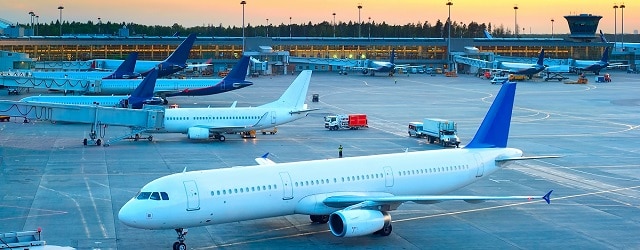Airlines across Europe, the US, Middle East and Asia slashed capacity and mothballed aircraft in a bid to stave off bankruptcy.

Global aviation faces its biggest crisis in decades. Airlines around the world are reeling from the impact of COVID-19, with infections continuing to soar in Europe and the United States. In March, the International Air Transport Association said global airlines need up to $200 billion in government support and warned that the majority of carriers could run out of money within two months without state intervention.
S&P Global Ratings, meanwhile, warned that the pandemic could dramatically reduce global passenger numbers. “Our current base case for global air passengers in 2020 assumes a decline of 20% to 30% from 2019, with full recovery achieved only in 2022–2023,” Julyana Yokota, S&P Global Ratings credit analyst, said in a research note.
Meanwhile, US airlines requested around $50 billion of federal government funding in the form of loans, grants and tax relief to shore up operations. They are seeking $25 billion in grants for passenger carriers and the same amount in loans or loan guarantees, said industry group Airlines for America in a recent briefing document. Separately, embattled plane maker Boeing, which is struggling to return the 737 MAX to service after two fatal crashes, called for $60 billion in assistance for US aircraft manufacturers.
Airlines across Europe, the US, Middle East and Asia slashed capacity and mothballed aircraft in a bid to stave off bankruptcy.
Meanwhile, trade association Airlines UK cautioned that the situation is dire after a spate of European airline credit ratings were placed on review. Last month, Moody’s Investors Services downgraded easyJet to Baa2, placed British Airways’ and IAG’s ratings on review for downgrade, and downgraded Lufthansa to Ba1.
Elsewhere, Dubai’s Emirates Airline reportedly grounded 20 of its 115 Airbus A380 aircraft and cut routes, while loss-making Etihad and Qatar Airways, which recently terminated 200 work-ers, look increasingly vulnerable.
Both Boeing and Airbus face the prospect that airlines will cancel existing orders and review future fleet requirements.
While the airlines battle for survival, related sectors are feeling the effects of this crisis. Fitch Ratings downgraded its sector outlook for global aircraft lessors to negative, from stable last month, citing the spread of the coronavirus as a motivating factor. Fitch says it “will result in increased lease deferrals or restructurings, airline bankruptcies and, ultimately, aircraft repossessions.”



